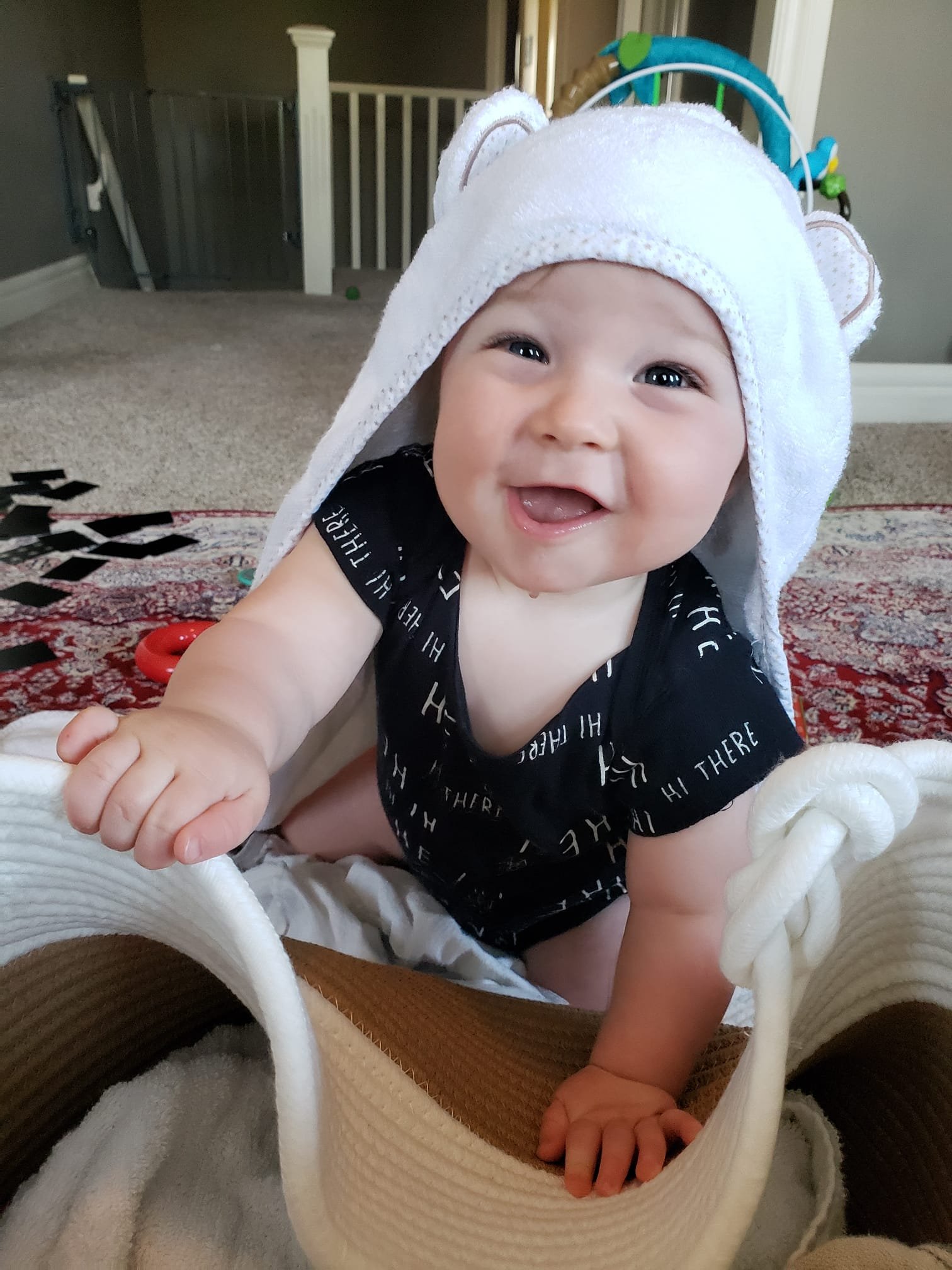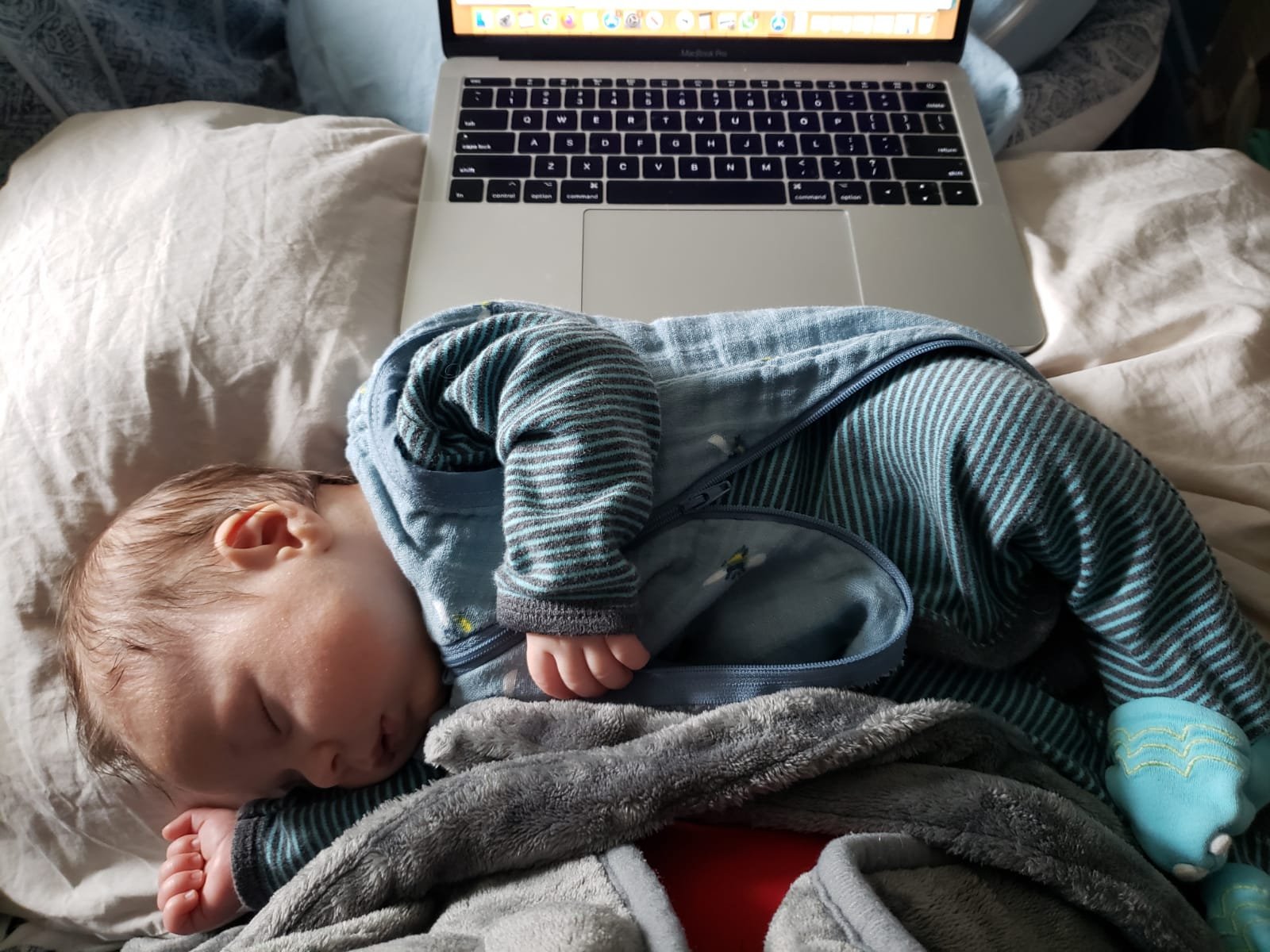The Best Parenting Advice I Ever Got: Three Game-Changers for the First Year
Keep content like this free by becoming a subscriber from $5/month:
A lot of people will tell you that the first year of parenting is really hard. It is, and it’s also beautiful and amazing, and I’m sure you already know all that. Of course, our number one priority as parents is always going to be the health and wellness of our little ones. But there were three things we did in the first year that made our lives so much better I can’t imagine trying to get through the first year without them. And I’m quite confident they made us better parents, too.
I know these three things aren’t for everyone, and every kid and every family is different. We got very lucky with a pretty easy, good-natured baby, and these tools worked for him beautifully (though I honestly suspect these things have helped encourage that easiness). They may not work the same way with another child—even, I’m sure, if I have a different kid. But if I do have another kid, I am 100% gonna at least try these things again. For suresday. No question. Like I said—game-changers.
Sleep training
This is not what sleep training looks like. But it’s what sleep often looks like in the first few months!
Yes. Sleep training. I agonized over whether or not to do this, whether it was safe, whether my baby was ready, and on and on. It helped to get cheerleading from other parents who had been through it and found it well worth the challenge. It helped to know that there is plenty of data out there on sleep training and there is no evidence of any long-term ill effects on children, and many positive effects for parents, especially mothers who might be experiencing postpartum depression. It helps the kid sleep better, which improves behavior and resilience and immune system and all kinds of stuff, but perhaps more importantly, it allows the parents to sleep. Parents who are not sleep deprived have oodles more patience for their tiny squalling child, which makes them better parents, and better partners to each other, which is also important for being good parents.
A lot of people think sleep training means abandoning your child to cry all night long. It does not mean that (at least, usually not). It includes things like setting up an appropriate sleep environment (white noise machine, very dark room), encouraging daytime calories (depending on age), keeping to age-appropriate wake windows, and a regular bedtime routine. Once all that is set up, you give the child some amount of time to go to sleep on their own before you intervene. For us, it was usually only about 10 minutes at a time. There are a ton of resources out there on this, and there is no single “correct” way to do it because every kid and every family is different. Some strategies are a little more strict and others are a little more gradual. We did a hybrid of a couple of techniques and tweaked parts of it as we went to accommodate things like night feedings, sleep regressions, naps, and so on. Some kids may need a stricter routine than ours did—again, he was pretty easy, and that’s a temperament thing we’re not 100% in control of. But, for the most part, it had a positive effect within three nights and has led to continuous sleep for 11-12 hours most nights (with some ups and downs in there). We got our evenings back and reasonably regular sleep. This changed everything for us. Like, we could start to see how people could have more than one kid, for example.
If you want more evidence-based information on sleep training including data on the long-term effects of sleep training, read more about it in Emily Oster’s Cribsheet.
2. Independent Playtime
Independent playtime means encouraging your kid to spend some time playing on their own in a safe environment without your intervention (though you do supervise, ideally from some distance). It encourages creativity, problem-solving, and independence. We started with five minutes in the play gym, but now that he’s older, he plays well enough by himself that I can often do dishes, clean up, or even do yoga with him around. He interrupts a lot, of course, but he doesn’t need me to be interacting with him every second. I found Janet Lansbury’s book Elevating Childcare to be a really good resource on this and many other things.
Please note that childproofing is a non-negotiable aspect of independent play. You can’t let them be free with their imaginations if you are constantly trying to keep their fingers out of the outlets.
3. Never do anything when the baby is asleep that you could do when the baby is awake
Working mom life
This is a brilliant piece of advice that, once I started doing it, I never looked back. I do my dishes, cooking, laundry, I even clean the bathroom with my kiddo around. Independent play is a part of how this works, but young kids are also fascinated by whatever their parents are up to, including house chores. It’s also never too early to find ways to include them, which encourages helpfulness and is great for their little brains. The key to it, though, is that you have to accept that the laundry you fold may be immediately unfolded and that it might take a while to get any particular thing done. I figure I’m not in a rush, so we might as well do it together. Naptime is for anything I need to actually focus on exclusively (or for when I need a nap).
That’s it! These are three simple things that, I think, go together really well and have helped me get some space for myself, feel rested enough to handle the stresses of parenting, and encourage some of the values I want to instill in my kid. We still have difficult days, of course, and every phase is a new challenge. But these things helped me and my partner immensely, and maybe they’ll help you, too.



